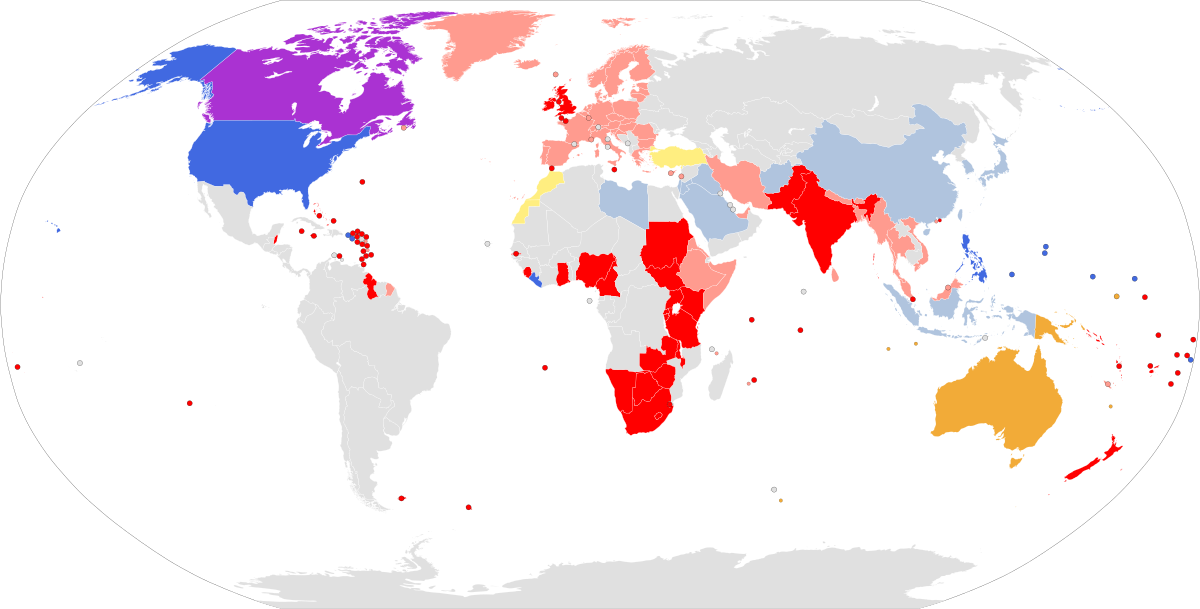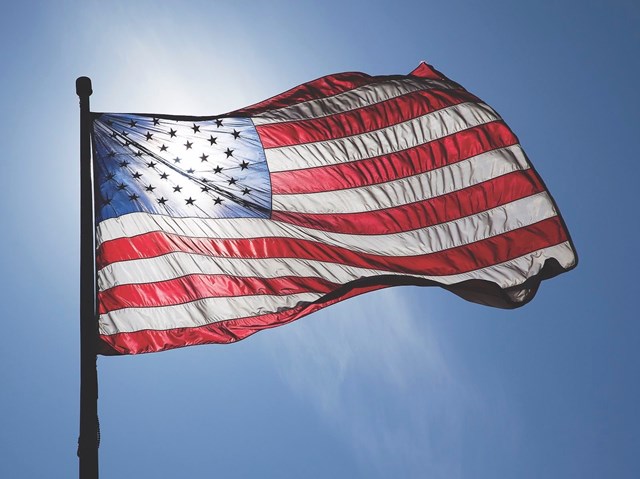I guess it is rarely used in the UK, within the USA embassy in London, but that must be about it, otherwise its use would be very confusing!
Ah yes, another bit of uncited, speculative 'Nigel Knowledge'. The information came from a source you selected as being accurate for the purpose of attempting (and failing) to bolster your previous assertion that the mm/dd/yy format was uniquely a USA usage - which, in case you haven't realized it yet,
your information source conclusively disproved your assertion.
Now you 'claim' that usage of the MM/DD/YY format in the UK is constrained to the USA embassy in London. Provide a verifiable source for that claim. Failure to do so will be a tacit acknowledgement that you can't and are, once again, formulating 'theories' for the sole purpose of trying to legitimize your fantasies and biases.
I again notice that you, as is typical when challenged about your inaccurate 'Nigel Knowledge', failed to address, or even acknowledge, the the other 28 areas where
your cited information source conclusively discredits your claim that the USA usage of the mm/dd/yy was 'in fact unique in the world'. No need to respond to this as the information itself stands on its own.
Why the USA alone chooses to use a format which can't easily be sorted
You know Nigel, there are times when I'm almost, but not quite, embarrassed for you when you choose to publicly display the level of ignorance that you sometimes do on this forum.
Used as a single entity mm/dd/yy (or mm/dd/yyyy) dates will be sorted with the same level of inaccuracy as dd/mm/yy (or dd/mm/yyyy) dates - and
neither is going to produce results that are chronological correct - so in this context the UK standard is as egregious as the USA standard.
The only format that is accurately 'sortable' as a single entity is yyyy/mm/dd. Areas that use a date format that can 'easily be sorted' are those areas that use yyyy/mm/dd format
exclusively (there are 9 that fall in this category) which would exclude the
UK and many other areas as well as the USA. There are 51 areas that use yy/mm/dd in conjunction with another format and that includes both the USA and UK.
The below example shows the results of sorting dates of differing formats using the entire date string as a single data item. It shows the YY/MM/DD dates sorted chronologically correct. The MM/DD/YY format groups the months together while the DD/MM/YY format groups days together both of which are incorrect. This conclusively demonstrates that both the MM/DD/YY and DD/MM/YY formats will not 'easily be sorted' to a chronologically correct sequence when used as a single entity as versus it's component parts.
YYYY/MM/DD MM/DD/YYYY DD/MM/YYYY
2012/03/15 03/15/2012 15/03/2012
2012/03/20 03/15/2013 15/03/2013
2012/04/15 03/20/2012 15/04/2012
2012/04/20 03/20/2013 15/04/2013
2013/03/15 04/15/2012 20/03/2012
2013/03/20 04/15/2013 20/03/2013
2013/04/15 04/20/2012 20/04/2012
2013/04/20 04/20/2013 20/04/2013
There is no difference in the
usability of date formats between the USA and the UK, only a difference in format.
As to the 'USA alone' choosing 'to use a format which can't easily be sorted' again your data source shows a total of 191 countries that do not include a yy/mm/dd (the only format that will sort correctly) option in date formats which is hardly the 'USA alone', and in fact does not include the USA which does, as does the UK. You really should review your data source, and learn something about the subject, before making these types of assertions.
I can also assure you that, based on over 30 years of software development experience, that any date format can 'easily be sorted' to a chronologically correct sequence simply by using the individual mm, dd, and yy/yyyy components (either as uniquely defined data items or a sub-string of the full date) versus the entire date as a whole. If you knew anything at all about computer programming, sorting algorithms and data structures it would be obvious to you and save you from embarrassing yourself by making such ridiculous statements.
As to the first part of your statement I've already shown, again using your information source and my sort examples, that it is not the "USA alone" that uses a format 'which can't easily be sorted'. The fact is the UK falls into that category as well if you're referring solely to the primary date format in use. If you insist on using optional formats there is still no difference between the UK and USA as they both utilize YY/MM/DD as a secondary option.
.... but they have a similar situation with measurement units!
There you go yet again, trying to divert attention from the fact that you're wrong - and to denigrate the USA in the process - 'congratulations' on your consistency.

But since you have brought up the subject of measurement units I guess it's appropriate to point out the following:
The UK is now metric - or is it?
- Petrol is sold by the liter but milk by the quart - although "Cow's milk is available in both litre- and pint-based containers in supermarkets and shops"
- All UK roads use the
imperial system
except for weight limits,
- Speedometers on vehicles sold in the UK must be capable of displaying miles per hour (I didn't realize that miles were a unit of measurement in the metric system)
- The United Kingdom completed its official
partial transition to the metric system in 1995, with imperial units
still legally mandated for certain applications
- Steel pipe sizes are sold in increments of inches, while copper pipe is sold in increments of millimetres.
- Road bicycles have their frames measured in centimetres, while off-road bicycles have their frames measured in inches.
- Original railways....distances officially measured in miles and yards or miles and
chains, and also feet and inches, and speeds are in miles per hour.
- Fuel consumption for vehicles is commonly stated in miles per gallon - (even though fuel is sold by the liter

).
- Land associated with farming, forestry and real estate are commonly advertised in acres and square feet but, for contracts and
land registration purposes, the units are always hectares and square metres.
The above information from:
https://en.wikipedia.org/wiki/Imperial_units#United_Kingdom
It would appear the British are not yet committed, either legally or culturally, to the 'superior' metric system.
Ref:
https://yougov.co.uk/topics/lifestyle/articles-reports/2015/06/20/britains-metric-muddle





